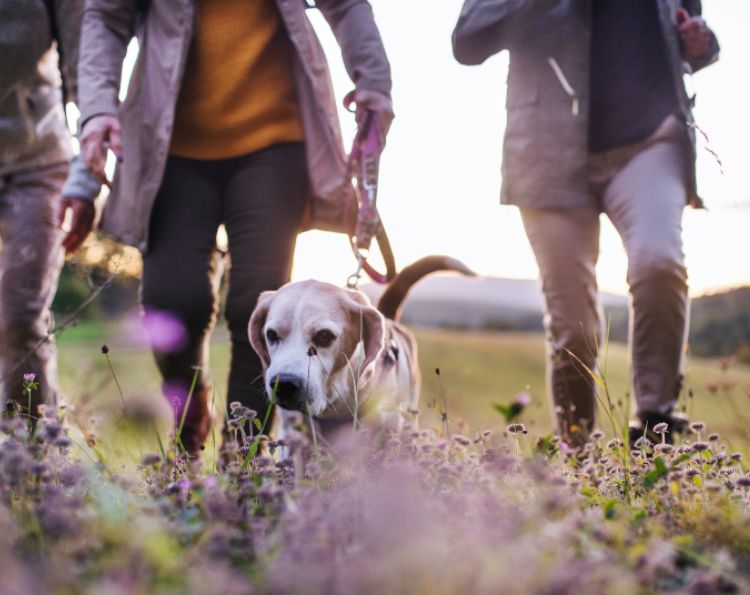Protecting Pets from Wildlife

As good weather allows our pets to be outdoors more, the benefits of fresh air and open land cannot be overstated. However, opportunities to encounter wildlife also increase. Understanding and minimizing dangerous encounters in the great outdoors will help prevent costly injuries or even deadly outcomes. And remember: Your pet can be both predator and prey!
Make A List of Local Predators
Your geographic location will largely determine the most common predators your pet may encounter. But the most common listings include:
- Canidae: includes domestic dogs, wolves, coyotes, foxes, etc..
- Feline: Lions, bobcats, domestic cats, etc.
- Scavengers: Rats, raccoons, etc.
- Birds of Prey: Eagles, hawks, owls, etc.
- Reptiles: Snakes, alligators, crocodiles, etc.
Protecting Your Pets
Safety measures can reduce or even eliminate danger to your pet once you identify what poses the greatest threat. The number one advice from virtually every resource is free and easy: Accompany your pet when they are outside. Other good suggestions include:
- Keep up your yard through clean landscaping, good lighting, and the sense of a human presence. Animals can detect when a yard has been turned over to the wild and may take advantage of high grass, large bushes, etc.
- If your yard is a food or water source, animals will frequently enter your space. Move food and water bowls inside your home.
- If your pet is a small dog, don’t leave them outside if natural predators are present in your neighborhood or on your property. And don’t forget birds of prey coming from the sky. Those who hunt at night can often be deterred by motion-censored lighting.
- Secure your fences using allowable products. Some HOA restrictions will prevent taller fences or products designed to prevent animals from climbing over or crawling under your fence. Keeping boards repaired and gaps filled can be an effective deterrent.
Pets Can Be Predators
All pets have animal instincts. Most are domesticated to the point they no longer hunt or prowl. However, if your pet is a hunter, remember they may become the predator of other people’s pets. If this is the case, make sure you follow these protocols:
- Make sure dogs can’t escape your property (most cats will go wherever they want).
- In some cases, a special leash or kennel may be needed.
- Get professional training to prevent aggression towards other animals.
Pet owners are often referred to as animal companions. The best way to keep every pet safe is to be their companion when they go outside. It’s healthy for them and healthy for you as well. If they are large enough to protect themselves from the local predators, enjoy that knowledge. However, most pets are not capable of dealing with an attack from a wild predator. Pet owners are automatically pet protectors. Love them, protect them, and keep them safe!